BHG - Identifyingeducation as the "key" to poverty reduction, improving people's knowledge and sustainable development, the provincial Department of Education and Training is taking the National Target Program (NTP) for socio-economic development in ethnic minority and mountainous areas as a lever; renewing thinking, taking drastic actions, and closely coordinating with all levels and sectors to improve the quality of education.
"Boost" for disadvantaged areas
Currently, the province has 392 general education institutions, including 13 ethnic boarding schools (2 junior high school boarding schools; 10 junior high and high school boarding schools; 1 high school boarding school), 187 semi-boarding schools, 73 schools with boarding students with nearly 145,000 boarding and semi-boarding students benefiting from the socio-economic development program for ethnic minority and mountainous areas. In the period of 2021 - 2025, the program has brought enormous resources and positive impacts on the education sector in a mountainous border province with many difficulties like Ha Giang .
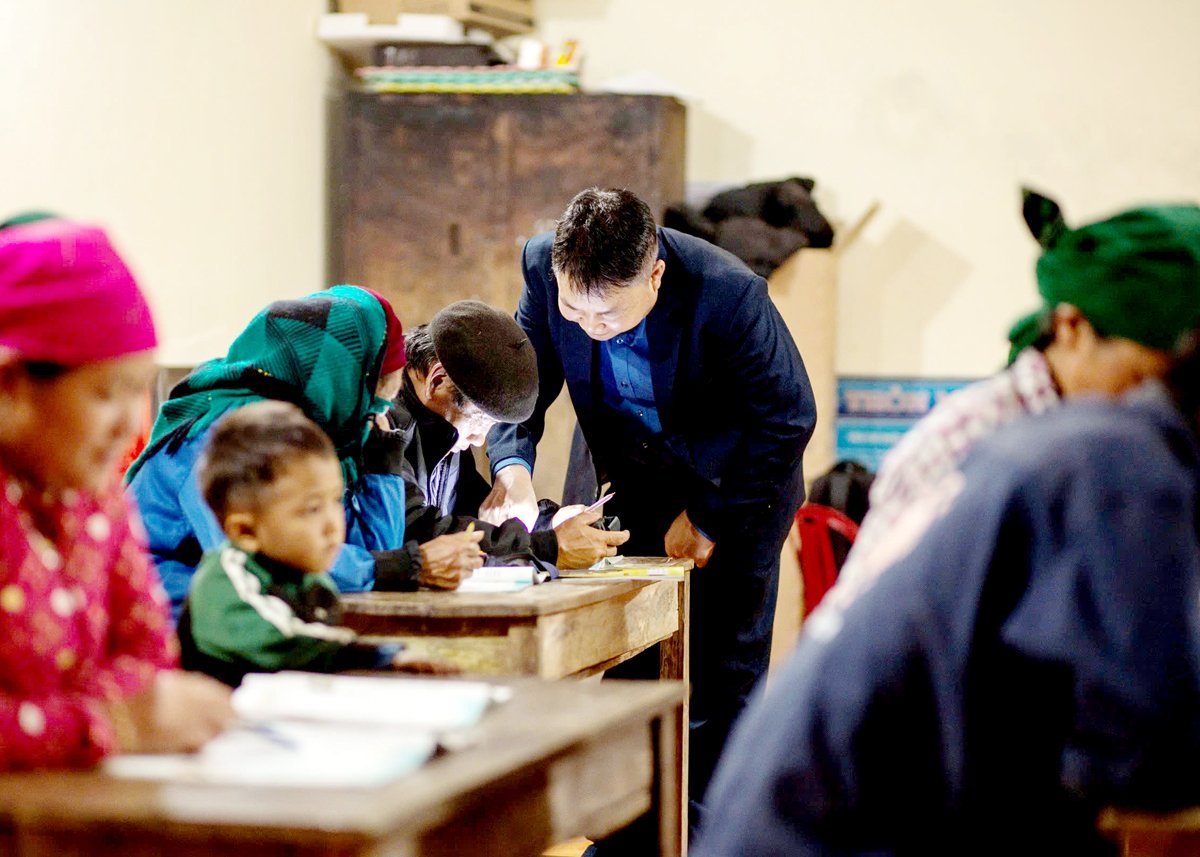 |
| Literacy class in Lao Chai village, Tung Vai commune (Quan Ba). |
After 4 years of implementation, through mobilizing and promoting the role and strength of the entire political system and the entire population, the education and training sector has built 94 new schools and classrooms; 40 public offices for teachers; 194 dormitories for boarding and semi-boarding students; 66 dormitory and semi-boarding student management rooms; 93 dining halls and kitchens; 96 clean water and sanitation facilities. Thereby, creating conditions for teaching and learning to be ensured thanks to resources from the National Target Program. Boarding and semi-boarding schools for ethnic minorities and schools with semi-boarding students have invested in building and repairing many essential items: classrooms, semi-boarding houses, sanitation facilities, kitchens, etc., contributing to improving the learning and living conditions for students.
On the other hand, in order to improve the capacity of teachers and managers, the Education sector has organized many training courses, professional development, active teaching methods, and application of information technology for over 6,000 managers and teachers, especially in mountainous and border communes. Literacy eradication is carried out annually; in 2024 alone, the whole province opened a total of 82 literacy classes with 1,793 students. The literacy rate among people aged 15-25 years old, level 1 literacy is over 152,170 people, reaching 98.87%; level 2 literacy is over 149,812 people, reaching 97.34%; age 15-35 years old, level 1 literacy is 304,120 people, reaching 98.09%; Level 2 literacy has 296,556 people, reaching 95.65%; age from 15 - 60 years old, level 1 literacy has 552,021 people, reaching 95.77%; level 2 literacy has 506,400 people, reaching 87.85%.
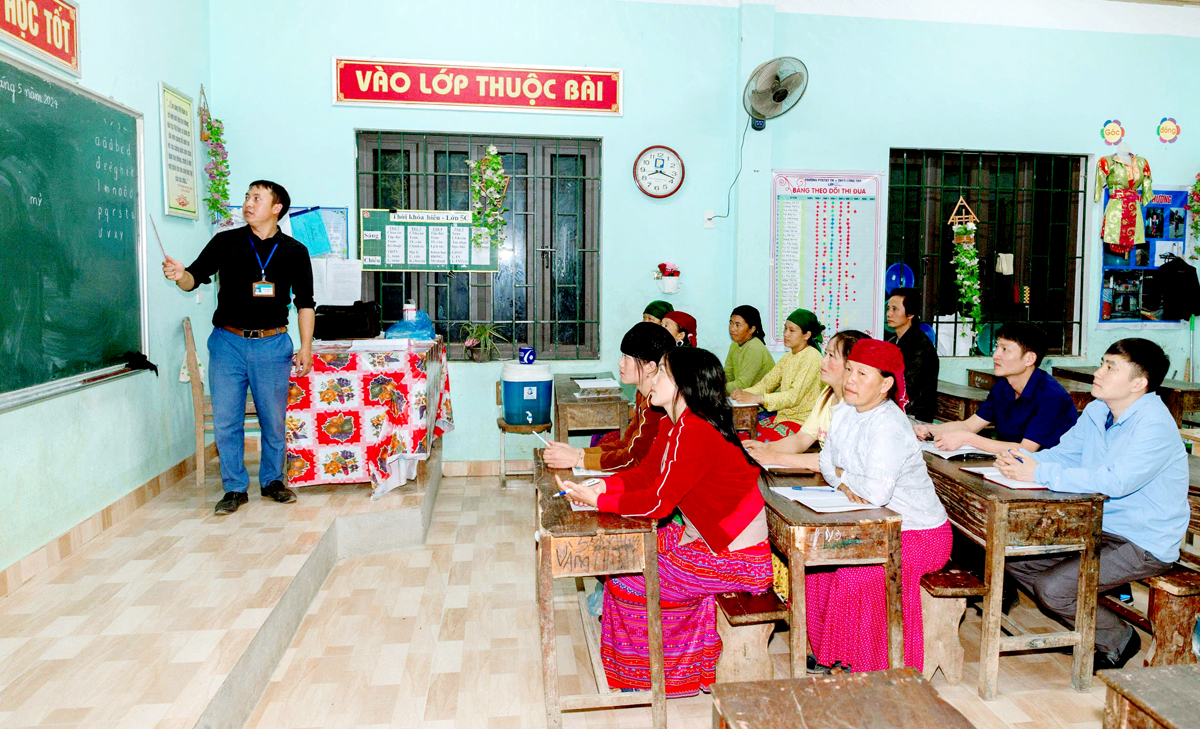 |
| Literacy class at Lung Tao Primary and Secondary Boarding School for Ethnic Minorities (Dong Van). |
Director of the Department of Education and Training Bui Quang Tri said: In early April 2025, the Department issued a plan to implement illiteracy eradication work in border communes in the province in 2025; by the end of April 2025, 45 illiteracy eradication classes were opened in 34 border communes and towns with 856 students participating. The Department proactively coordinated with departments, branches, and mass organizations such as the Provincial Border Guard Command, the Women's Union, the Provincial Youth Union, etc. to organize illiteracy eradication classes, mobilize students to go to school, and build a learning society in disadvantaged localities.
Due to many difficulties, many educational institutions in the province are currently lacking classrooms, public housing, dining halls, sanitary facilities, teaching equipment and conditions for boarding and semi-boarding. In the process of implementing the National Target Program for Socio-Economic Development in Ethnic Minority and Mountainous Areas, some investment projects and equipment procurement are behind schedule due to difficulties in mechanisms, policies, regulations on the Law on Bidding, capacity of contractors, and difficulties in site clearance. Organizing literacy classes is difficult because the subjects are the main laborers, the study time is unstable, there is a lack of materials, and a lack of funding to pay teachers. It is worth mentioning that the activities of the Steering Committee in some localities are not really effective; there is a lack of regular inspection and supervision of units in implementing the task of universalizing education.
Efforts to remove barriers
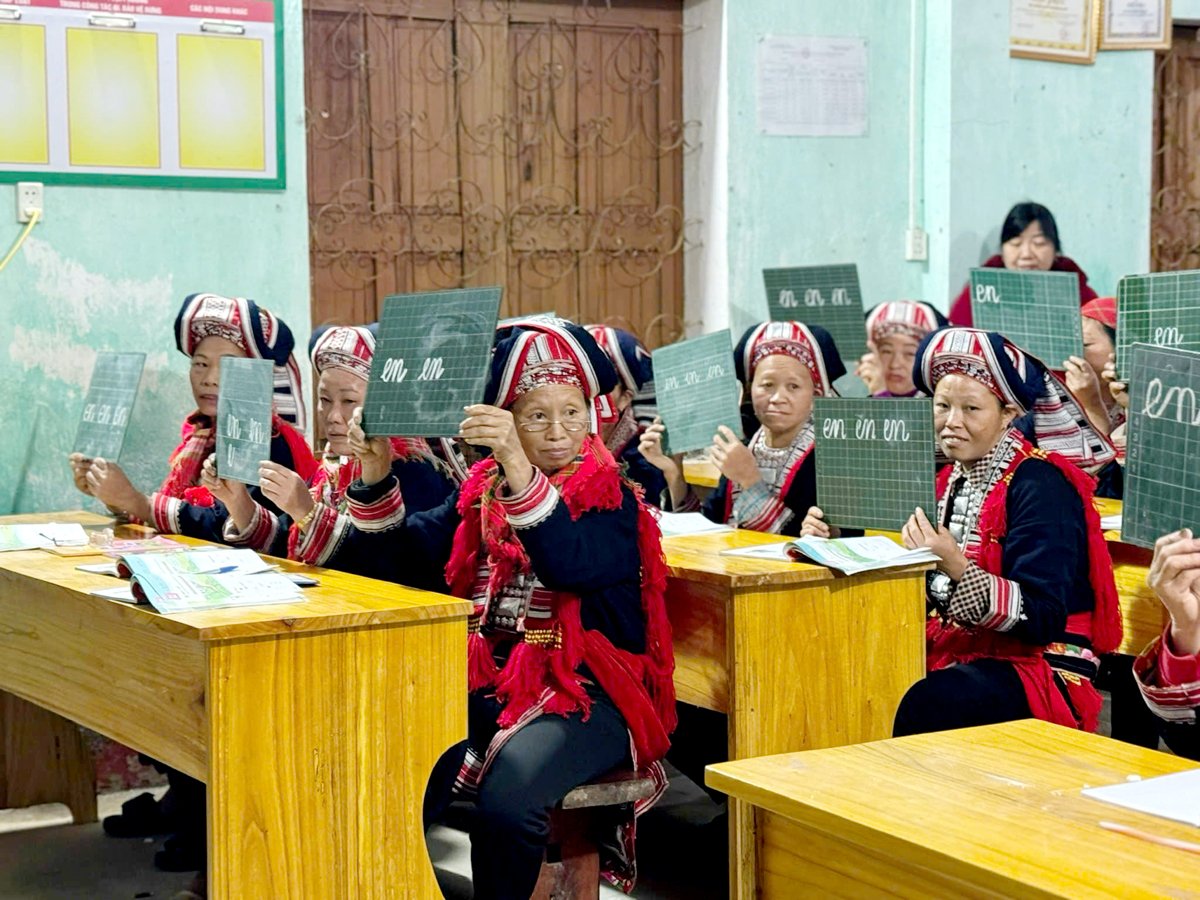 |
| Literacy class in Doan Ket village, Ho Thau commune, Hoang Su Phi district. |
Determined to overcome difficulties to improve the quality of education, the education sector aims to maintain and improve the quality of universal education at all levels; the rate of mobilizing children to go to school at the right age reaches over 99%; 100% of ethnic minority students study in safe and friendly conditions; and illiteracy eradication reaches level 2 in the whole province.
In order to "unlock" sustainable development, ensuring that the national target program for socio-economic development in ethnic minority and mountainous areas is on target and targeted, the education sector has determined to continue investing in facilities and modern teaching equipment for schools in disadvantaged areas, especially semi-boarding and boarding schools. Propose to develop and implement specific incentive policies to attract competent and dedicated teachers to work in remote, isolated and extremely disadvantaged areas. Organize training courses to improve digital skills and active and flexible teaching methods, suitable to the characteristics of ethnic minority students.
“The sector will propose to prioritize investment in developing information technology infrastructure for education in ethnic minority and mountainous areas, focusing on completing the broadband internet network system at all schools in remote, isolated and border areas. Deploying digital teaching equipment such as computers, projectors, interactive boards and building digital learning materials warehouses suitable for ethnic minority students; gradually promoting digital transformation in education...." Director of the Department of Education and Training Bui Quang Tri added.
Article and photos: Kim Tien
Source: https://baohagiang.vn/xa-hoi/202506/don-bay-phat-trien-giao-duc-toan-dien-0bc59e1/










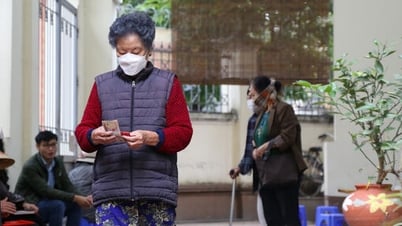



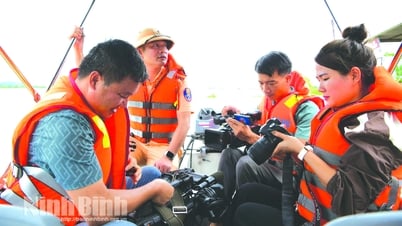

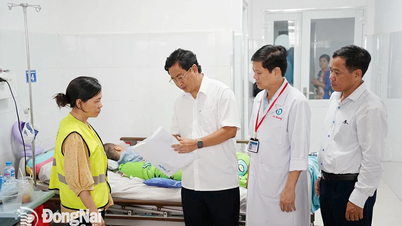







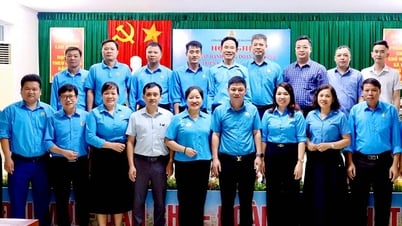
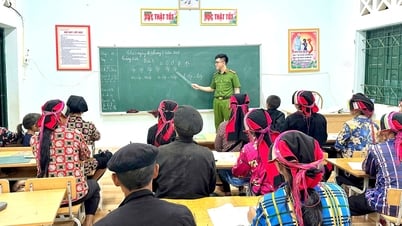
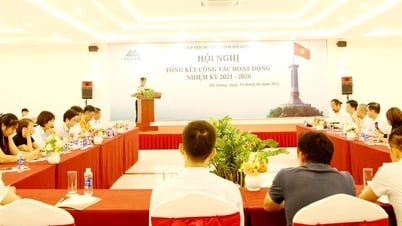

































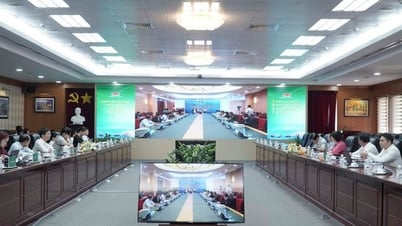









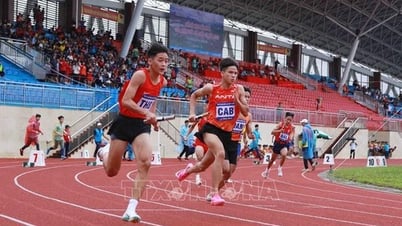





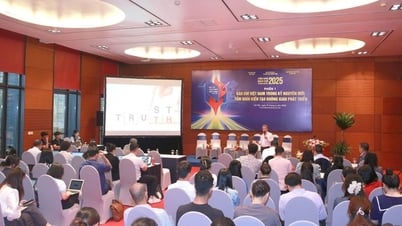
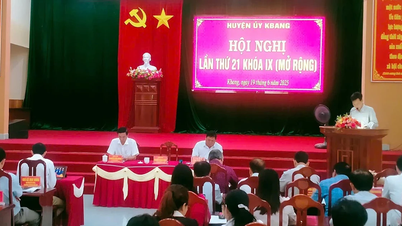

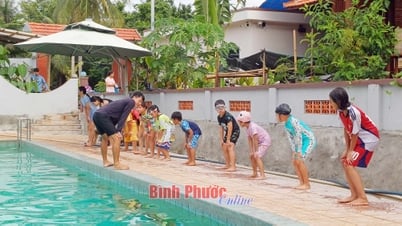


















Comment (0)